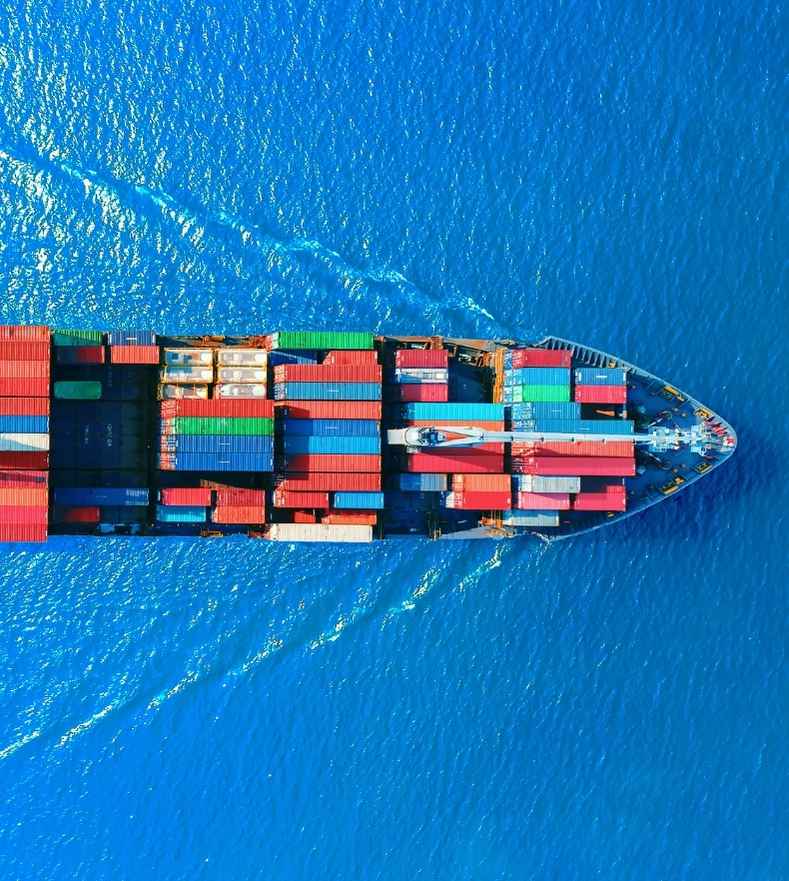-
Financial administration & outsourcing
Entrepreneurs who outsource financial administration reduce the number of administrative tasks and consequently have more time and space to focus on growth.
-
Financial insight
We help you turn financial data into valuable insights that support you in making well-founded decisions. In-depth analyses of your financial situation will help give you a better idea of where you stand and where the opportunities for growth lie, both in the short and long term.
-
Financial compliance
We make sure your company complies with financial legislation and regulations, with correct financial statements, tax reports and other obligations. From our global network, we support you in managing local and international tax risks.

-
Impact House by Grant Thornton
Building sustainability and social impact. That sounds good. But how do you go about it in the complex world of stakeholders, regulations and frameworks and changing demands from clients and society? How do you deal with important issues such as climate change and biodiversity loss?
-
Business risk services
Minimize risk, maximize predictability, and execution Good insights help you look further ahead and adapt faster. Whether you require outsourced or co-procured internal audit services and expertise to address a specific technology, cyber or regulatory challenge, we provide a turnkey and reliable solution.
-
Cyber risk services
What should I be doing first if my data has been kidnapped? Have I taken the right precautions for protecting my data or am I putting too much effort into just one of the risks? And how do I quickly detect intruders on my network? Good questions! We help you to answer these questions.
-
Deal advisory
What will the net proceeds be after the sale? How do I optimise the selling price of my business or the price of one of my business activities?
-
Forensic & integrity services
Do you require a fact finding investigation to help assess irregularities? Is it necessary to ascertain facts for litigation purposes?
-
Valuations
Independent and objective valuations tailored for mergers, acquisitions, and legal matters.

-
Auditing of annual accounts
You are answerable to others, such as shareholders and other stakeholders, with regard to your financial affairs. Financial information must therefore be reliable. What is more, you want to know how far you are progressing towards achieving your goals and what risks may apply.
-
IFRS services
Financial reporting in accordance with IFRS is a complex matter. Nowadays, an increasing number of international companies are becoming aware of the rules. But how do you apply them in practice?
-
ISAE & SOC Reporting
Our ISAE & SOC Reporting services provide independent and objective reports on the design, implementation and operational effectiveness of controls at service organizations.

-
International corporate tax
The Netherlands’ tax regime is highly dynamic. Rules and the administrative courts raise new challenges in fiscal considerations on a nearly daily basis, both nationally and internationally.
-
VAT advice
VAT is an exceptionally thorny issue, especially in major national and international activities. Filing cross-border returns, registering or making payments requires specialised knowledge. It is crucial to keep that knowledge up-to-date in order to respond to the dynamics of national and international legislation and regulation.
-
Customs
Importing/exporting goods to or from the European Union involves navigating complicated customs formalities. Failure to comply with these requirements usually results in delays. In addition, an excessively high rate of taxation or customs valuation for imports can cost you money.
-
Human Capital Services
Do your employees determine the success and growth of your organisation? And are you in need of specialists which you can ask your Human Resources (HR) related questions? Human Resources (HR) related questions? Our HR specialists will assist you in the areas of personnel and payroll administration, labour law and taxation relating to your personnel. We provide you with high-quality personnel and payroll administration, good HR guidance and the right (international) advice as standard. All this, of course, with a focus on the human dimension.
-
Innovation & grants
Anyone who runs their own business sets themselves apart from the rest. Anyone who dares stick their neck out distinguishes themselves even more. That can be rather lucrative.
-
Tax technology
Driven by tax technology, we help you with your (most important) tax risks. Identify and manage your risks and become in control!
-
Transfer pricing
The increased attention for transfer pricing places greater demands on the internal organisation and on reporting.
-
Sustainable tax
In this rapidly changing world, it is increasingly important to consider environmental impact (in accordance with ESG), instead of limiting considerations to financial incentives. Multinational companies should review and potentially reconsider their tax strategy due to the constantly evolving social standards
-
Pillar Two
On 1 January 2024 the European Union will introduce a new tax law named “Pillar Two”. These new regulations will be applicable to groups with a turnover of more than EUR 750 million.
-
Cryptocurrency and digital assets
In the past decade, the utilization of blockchain and its adoption of a distributed ledger have proven their capacity to revolutionize the financial sector, inspiring numerous initiatives from businesses and entrepreneurs.
-
Streamlined Global Compliance
Large corporations with a presence in multiple jurisdictions face a number of compliance challenges. Not least of these are the varied and complex reporting and compliance requirements imposed by different countries. To overcome these challenges, Grant Thornton provides a solution to streamline the global compliance process by centralizing the delivery approach.
-
Corporate Law
From the general terms and conditions to the legal strategy, these matters need to be watertight. This provides assurance, and therefore peace of mind and room for growth. We will be pro-active and pragmatic in thinking along with you. We always like to look ahead and go the extra mile.
-
Employment Law
What obligations do you have with an employee on sick leave? How do you go about a reorganisation? As an entrepreneur, you want clear answers and practical solutions to your employment law questions. At Grant Thornton, we are there for you with clear advice, from contracts and terms of employment to complex matters such as dismissal or reorganisation.
-
Sustainable legal
At Grant Thornton, we help companies integrate sustainability into their business operations, with sustainable legal at the heart of our approach. We advise on ESG (Environmental, Social, Governance) legislation, and help draft sustainable contracts, implement HR policies, and carry out ESG due diligence in M&A transactions (Mergers and Acquisitions).
-
Maritime sector
How can you continue to be a global leader? The Netherlands depends on innovation. It is our high-quality knowledge which leads the maritime sector to be of world class.

An introduction to the EUDR
The European Union Deforestation Regulation (EUDR) prohibits importing and trading products from illegally harvested forests on the EU market. This regulation differentiates between ‘marker operators’ (those directly introducing these goods) and ‘traders’ (who distribute them further within the EU). EUDR compliance is mandatory for (commodity) products such as livestock, palm oil, soy, cocoa, coffee, rubber and timber, and their derivatives such as leather, chocolate and processed palm oil products. If an EU party creates new products that are on the list of EUDR-listed products, such party will also be considered a ‘market operator’.
Compliance with the EUDR
To ensure compliance regarding the goods that your company imports and sells are not illegally harvested, and are allowed on the EU market, your company has to apply for a due diligence identification number. This number verifies whether the goods meet EUDR standards and can legally be put on the EU market. Every trader in the supply chain must retain this due diligence identification number and, depending on its size meet more far-reaching requirements. Want to know more about the EUDR? Read our latest article.
Companies in scope
Compliance requirements under the EUDR differ by company size. Large enterprises (i.e. a company with an annual turnover above EUR 43 MIO or a balance total of more than EUR 50 MIO, and having 250 or more employees) that act as traders must fulfill similar obligations, as market operators. All other (smaller) businesses acting as traders face fewer compliance steps but must still meet core EUDR requirements.
Timeline and upcoming events
Country benchmarking
Originally scheduled to take effect for large companies in scope
Possible extension to other natural ecosystems
Originally scheduled to take effect for all other companies in scope
Extended deadline
To take effect for large companies in scope
EUDR Sanity check
Our Sanity check provides a fast evaluation of your company’s EUDR compliance obligations, helping you identify any compliance gaps and understand actionable next steps. Our Sanity check includes:
- Product range analysis
- Data review
- EUDR onboarding
Deliverables
- Data analysis report
- Product range assessment
Our EUDR Sanity check helps you gain clarity on EUDR obligations, reduce compliance risks, and meet regulatory requirements early.
EUDR Compliance advisory
Our EUDR Compliance Advisory offers expert support throughout your compliance journey, from data preparation to report submission. This service includes:
- Supplier compliance check
- Due Diligence number application
- Quality assessment
Deliverables
- Detailed data guidance
- Quality control report
- Compliance readiness report
Our Compliance Advisory provides full-service support for your EUDR reporting, from initial data preparation to final submission. This service minimizes the risk of non-compliance penalties and keeps your business on track.
EUDR Ongoing assistance
For companies needing end-to-end support, our EUDR Ongoing assistance ensures that your EUDR compliance is effectively managed and optimized. We offer ongoing support, strategic advice, and proactive improvements to keep your reporting efficient and compliant. This service includes:
- Scheduled and ad hoc reporting
- Strategic advisory
- Ongoing compliance support
- Training
- Communication with authorities
Deliverables
- Ongoing compliance assessment
- Strategic advisory report
- Team training and documentation
- Authority communication support
Our ongoing EUDR assistance service supports you at every stage of compliance, from initial assessments through continuous reporting. We work with you to optimize processes, minimize costs, and integrate compliance seamlessly into your operations.
Further assistance
Providing support in communication with local authorities for tasks such as registering EORI numbers, eHerkenning, reclassifying certain goods, correcting product codes, and submitting BTI requests (non-exhaustive).

Would you like to get a better understanding of the impact of the EUDR on your company? And would you like some assistance to take the first step from theory to practice? We can help.











